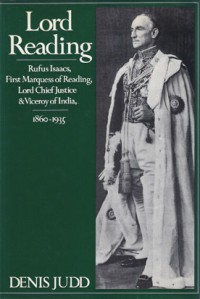An accessible biography of a remarkable man

In an era when politics in Britain was dominated by an oligarchic upper class, Rufus Isaacs was a true anomaly. The son of an East End fruit importer, he left school at an early age and spent a year abroad as a ship's boy. Upon his return he worked as a stockjobber until a slump forced him to abandon finance for the law. After a meteoric rise at the bar Isaacs won election to Parliament and served in a variety of posts in the pre-war Liberal governments, leading to his enoblement as the baron of Reading upon becoming Lord Chief Justice. Though his association with the Marconi scandal tarnished his standing, wartime diplomatic service and his friendship with David Lloyd George led to Reading's selection as Viceroy of India, in which post he served at a time of rising nationalist tumult. Returning to a fractured Liberal Party, he endeavored unsuccessfully to heal the divides between the various groups, though his status as an esteemed elder statesman led to his appointment as Foreign Secretary in the initial National Government formed in 1931 to deal with the crisis brought about by the Great Depression.
Given Isaacs's remarkable career, it is disappointing that there are so few biographies about him. Fortunately Denis Judd makes up for this with a book that provides readers a comprehensive and accessible overview of his life and times. This is no small feat given that doing so requires Judd to master not just the politics of Isaacs's time but the relevant aspects of the English legal profession — which, while still not addressed in the detail it deserves, he does in a way that distills this key part of his subject's life to easily comprehensible information. When supplemented with Judd's astute analysis, it makes for a book that gives readers an excellent introduction to a politician and statesman who deserves to be remembered both for his many achievements and the circuitous path he took to reach them.
 3
3






